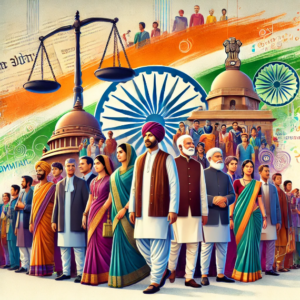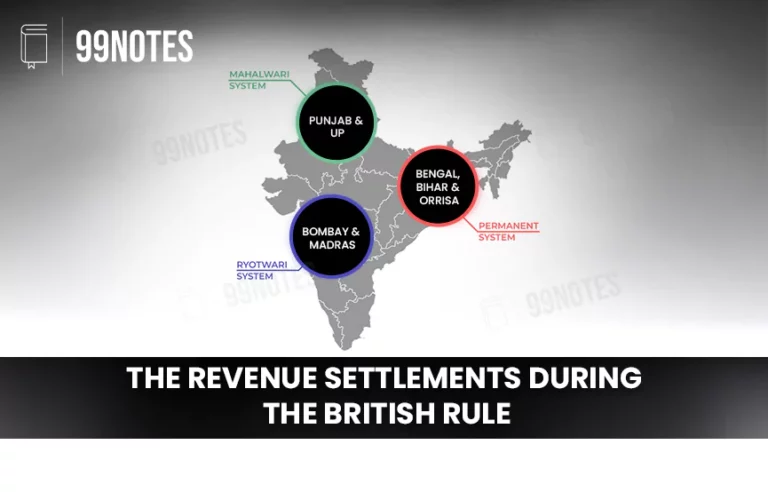Issues Related to Secularism in India
In recent decades, secularism has faced challenges, including communal violence, judicial disputes like the Shah Bano case and Sabarimala verdict, and the rise of identity-based politics, with debates around the Uniform Civil Code highlighting ongoing tensions. Despite these challenges, secularism remains a fundamental pillar of India’s democratic identity.
- There have been a tension between religious freedom and gender justice, as seen in cases such as the Triple Talaq verdict, where religious practices were challenged in favour of gender equality.
- Similarly, the Sabarimala temple entry case raised questions about religious customs versus the right to equality and non-discrimination. Additionally, the debate over the implementation of the Uniform Civil Code (UCC) highlights the complexities of harmonizing personal laws across different religious communities while upholding the constitutional values of equality and justice.
Additionally, balancing the freedom of religion with the state’s duty to maintain neutrality can lead to complexities in policy implementation. These challenges highlight the need for sustained efforts to reinforce the secular fabric of the nation while addressing the underlying socio-political dynamics.
Challenges to Secularism in India
- Challenges to Secularism in India
- Uniform Civil Code (UCC)
- Key Features of the Uniform Civil Code (UCC)
- Arguments in Favour of UCC
- Challenges associated with UCC
- Importance of Secularism in Democracy
- Government initiatives and measures to Promote secularism
- Way forward For Securing Secularism in India
- Related FAQs of Issues Related to Secularism in India
- Politicization of Religion: Political parties exploit religious sentiments for electoral gains, leading to communal polarization and weakening secular governance. For example, Use of religion in election campaigns despite legal restrictions.
- Communalism and Religious Extremism: Rise of fundamentalism and communal violence undermines secular policies and creates social divisions. For example, Communal riots and opposition to reforms like Triple Talaq abolition.
- Resistance from Religious Institutions: Religious groups perceive secular reforms as interference in faith, resisting changes in personal laws and social practices. For example, Opposition to Uniform Civil Code (UCC).
- Lack of Uniform Civil Code (UCC): Different personal laws for different communities create legal inequalities, challenging the secular ideal of equality before the law. For example, Variations in marriage and inheritance laws among religious communities.
- Judicial Challenges and Inconsistent Interpretations: Courts face difficulties balancing religious freedom with constitutional morality, leading to varied interpretations and delays. For example, Conflicting judgments in cases like Sabarimala temple entry.
- Social and Cultural Resistance: Deep-rooted religious traditions resist modern secular reforms, slowing social progress and creating divides. For example, Opposition to reforms related to gender rights and caste-based discrimination.
- Misinformation and Media Sensationalism: Biased reporting and fake news distort secular policies, fuelling religious tensions and misunderstanding. For example, Spread of false narratives about secular policies on social media.
- Perception of Minority Appeasement: Secular initiatives are often perceived as biased towards minorities, leading to resentment among majority communities. For example, Criticism of government schemes targeted at minority welfare.
- Economic Disparities Among Religious Communities: Socio-economic inequalities among religious groups lead to alienation and demands for special treatment, complicating secular policies. For example, Sachar Committee findings on Muslim socio-economic conditions.
Uniform Civil Code (UCC)
The Uniform Civil Code (UCC) refers to a proposal to replace the personal laws of different religious communities in India with a common set of laws governing personal matters such as marriage, divorce, inheritance, and adoption.
It aims to ensure uniformity and equality in civil matters, irrespective of religion and is a directive principle of state policy under Article 44 of the Indian Constitution.
Key Features of the Uniform Civil Code (UCC)
- Uniformity in Personal Laws: The UCC seeks to establish a single legal framework for all citizens in matters such as marriage, divorce, succession, and adoption, ensuring that the same set of rules apply regardless of an individual’s religion. It aims to replace religious-specific laws such as Hindu Personal Law, Muslim Personal Law, and Christian Personal Law.
- Gender Equality and Social Justice: A major objective of the UCC is to promote gender equality by eliminating discriminatory practices in various personal laws, such as polygamy and unequal inheritance rights. It aims to empower women and marginalized groups by ensuring equal rights across all communities.
- Secularism and National Integration: The implementation of a UCC would promote the secular character of the Indian state by treating all citizens equally, irrespective of their religious beliefs. It is believed to contribute to national unity and integrity by fostering a sense of common citizenship.
- Simplification of Laws: Currently, India has multiple personal laws for different communities, leading to legal complexities and contradictions. The UCC would simplify the legal framework, making it easier to administer and ensuring consistent justice delivery.
- Article 44 of the Indian Constitution: The Constitution of India includes UCC as a Directive Principle of State Policy (DPSP), which means it is not enforceable by courts but serves as a guiding principle for future governance. The article states: “The State shall endeavour to secure for the citizens a uniform civil code throughout the territory of India.”
- Judicial Support and Recommendations: The Supreme Court of India, in various judgments (e.g., Shah Bano Case, 1985; Sarla Mudgal Case, 1995), has emphasized the need for a Uniform Civil Code to promote equality and justice. Law Commission reports have also analysed the feasibility and challenges of implementing the UCC.
Arguments in Favour of UCC
It Promotes Secularism, i.e. there would be no difference on the basis of religion. This would strengthen the secular fabric of the nation by treating all religions equally in civil matters, thereby creating the following advantages:
- Equality before Law: It would bring, both genders, all religions and all geographies at par with each other’s.
- Saving vulnerable sections from unjustified codes:
- Prevention of Child Marriage: A UCC can eliminate child marriage by force. Currently Child Marriage Act abolishes only those child marriages which are against the child’s wish.
- Gender Justice: In terms of removal of polygamy, ensuring property rights etc. Further it provides uniform rights to women in matters of marriage, divorce, and inheritance, alimony and widow’s claim to inheritance shall be strengthened.
- Social Justice: It would make it easier for people form different caste and religions to register a marriage.
- Simplification of Civil Laws: Making it easier to register marriages or exit form a marriage, both for the applicants and the Lawyers. Currently there are many personal laws in India like Hindu code bill, Muslim personal law, Special marriage act etc. etc.
- Right to marry: It is a fundamental right under Article 21 according to the Puttaswamy Judgement. But a person under special marriage act is restricted to marry, as it allows people to file objections to marriage. A UCC might change this scenario.
- For a secular society: It will de-link law from religion which is a very desirable objective to achieve in a secular and socialist pattern of society.
- Fulfilling constitutional dream: Moreover, it fulfil the constitutional mandates under Article 44 of Directive Principles of State Policy.
- Possibility of LGBT marriage: Which is impossible in the personal laws.
- Loosening of Patriarchal Control: which is responsible for strict observance of caste based discrimination and gender discrimination.
- Reduce Vote Bank politics: There have been examples of politics been played in many cases like Shah Bano case etc.
Challenges associated with UCC
There are several Practical Challenges in the Implementing UCC that requires addressing deeply rooted customs and traditions across different communities.
- Risk to diversity in the name of unity: Article 29 defines the right to conserve distinctive culture. However it may go against various cultural practices, wherein there can be for example, practice of prohibited relationships amongst cousins, many tribal cultures allow marriage even amongst first cousins.
- Religious opposition: The orthodox sections of all religions would object to a progressive laws that takes away patriarchal control over marriage. There have been opposition to banning of triple talaq by muslims, removal of practice of ‘Sapindas’ by Hindus. And in no religion same sex marriage is allowed.
- Lack of Political will: The political parties have not gathered enough will to implement uniform civil code in India even after 70 years of independence.
- Legal Challenge: Bringing all these institutions of marriage would be a difficult task.
- Administrative challenge: Registration of all marriages with a new system would require capacity enhancement.
There is a need for Consensus. Without widespread societal agreement, the enforcement of UCC could lead to social unrest and opposition.
| Current Status of UCC in India |
|
The Uniform Civil Code, if implemented thoughtfully and inclusively, has the potential to promote equality, justice, and national unity. However, its success depends on balancing religious freedom with constitutional values and ensuring consensus among all stakeholders.
Importance of Secularism in Democracy
Secularism is a cornerstone of democratic governance, ensuring that state policies are free from religious influence, thus promoting equality, freedom, and justice. A secular democracy guarantees equal treatment for all religions, enabling citizens of various faiths (or none) to participate equally in public life without fear of discrimination.
- Religious Freedom: Secularism protects individuals’ right to practice any religion or remain non-religious without discrimination.
- Equality and Social Justice: It ensures that no religion is favoured by the state, promoting fairness in public services, education, and employment.
- Prevents Religious Conflicts: By separating religion from governance, secularism minimizes the risk of communal violence and encourages peaceful coexistence.
- National Integration: Secularism fosters unity, embracing the principle of “Unity in Diversity” by respecting all religious communities.
- Rational Governance: Policies are based on reason, scientific evidence, and human rights, rather than religious dogma.
- Protects Minority Rights: Secularism ensures that religious minorities are not marginalized or subjected to majoritarian oppression.
Government initiatives and measures to Promote secularism
To uphold the principle of secularism, the Government of India has consistently undertaken various initiatives and measures aimed at promoting secularism, fostering interfaith harmony, and ensuring the peaceful coexistence of diverse communities. These measures not only strengthen the constitutional mandate but also preserve the rich cultural and religious diversity of the country.
- Constitutional Provisions and Amendments: The 42nd Amendment (1976) added “secular” to the Preamble of the Indian Constitution, reinforcing the commitment to equal respect for all religions (e.g., Articles 25-28 guarantee religious freedom while ensuring state regulation for social justice).
- Legislative Measures: The Representation of the People Act (1951) prohibits using religion for electoral gains, as seen in the legal restriction against religious-based vote mobilization in elections.
- National Integration Council (NIC): The NIC facilitates discussions among political leaders, social activists, and religious heads to strengthen national unity, combating communal violence through policy recommendations.
- Inclusion of Secularism in School Curriculum: The National Education Policy (2020) promotes secular values in schools by emphasizing India’s pluralistic heritage and fostering respect for diversity and religious tolerance.
- Judicial Interventions: The S.R. Bommai case (1994) declared secularism as part of the basic structure of the Constitution, ensuring state policies adhere to secular principles and do not favour any religion.
- Measures to Prevent Communal Violence: The National Foundation for Communal Harmony (NFCH) provides financial support and rehabilitation for victims of communal violence, promoting communal harmony at the grassroots level.
- Media and Public Awareness Campaigns: Doordarshan and All India Radio air programs that promote national unity, secularism, and religious harmony, and social media campaigns further emphasize inclusivity and communal peace.
Way forward For Securing Secularism in India
Implementing secular initiatives in India, a nation renowned for its rich cultural and religious diversity, poses significant challenges.
While the Constitution guarantees secularism as a fundamental principle, ensuring its practical application often encounters obstacles such as deep-rooted communal sentiments, political exploitation of religious identities, and socio-economic inequalities among communities.
The way forward must focus on strengthening democratic institutions, fostering inclusive education, and encouraging societal participation to uphold India’s unique model of secularism.
- Strengthening Legal Frameworks: Gradually implement the Uniform Civil Code (UCC) with consensus and enforce strict penalties for communal violence and hate speech, as per the Representation of the People Act, 1951.
- Promoting Interfaith Dialogue: Establish Interfaith Councils at national and state levels to address religious grievances and foster dialogue, while encouraging local-level community programs for cooperative initiatives.
- Educational Reforms to Promote Secular Values: Integrate secular values and constitutional rights into school curricula, and conduct awareness campaigns in educational institutions to promote religious tolerance.
- Regulating Religious Influence in Politics: Strengthen enforcement of laws prohibiting religious appeals for electoral gains and introduce stricter guidelines to prevent communal rhetoric during elections.
- Media Responsibility and Regulation: Enforce regulations to prevent sensationalism and misinformation in the media and encourage content that highlights India’s pluralistic heritage and promotes secularism.
- Cultural Exchange and Integration Initiatives: Expand programs like Ek Bharat Shreshtha Bharat to promote unity through cultural exchanges and organize national and regional festivals that celebrate India’s secular values.
- Combating Online Religious Misinformation: Collaborate with social media platforms to monitor and curb religious hate speech and misinformation, while promoting digital campaigns for interfaith harmony.
- Transparent and Inclusive Policy-Making: Consult religious and civil society organizations in policy formulation to ensure inclusivity and regularly publish reports to maintain accountability in secular initiatives.
Related FAQs of Issues Related to Secularism in India
Secularism in India faces challenges like communal violence, identity-based politics, and judicial conflicts such as the Shah Bano and Sabarimala cases. These highlight the tension between religious practices and constitutional values like gender justice and equality under the Indian Constitution.
The Uniform Civil Code (UCC) aims to replace personal laws based on religion with a common set of civil laws. It’s seen as a way to promote equality and uphold secularism as outlined in Article 44 of the Indian Constitution and supported by the judiciary in several Indian Kanoon cases.
Legal challenges include the diverse personal laws and resistance from religious institutions. Socially, patriarchal customs and cultural practices make it difficult to reach consensus. Many of these are discussed in Articles of Indian Constitution and debated in courts, including recent Uttarakhand UCC legislation.
The judiciary has played a critical role, especially in cases like S.R. Bommai, Triple Talaq, and Shah Bano, where it emphasized secular values and constitutional morality. These decisions, often found on Indian Kanoon, reinforce the secular structure of the Constitution of India.
Measures include educational reforms to promote secular values, interfaith dialogue, strict regulation of religious politics, and media accountability. Implementing the UCC with societal consensus and upholding legal provisions like those in the Representation of the People Act are key steps under the Constitution of India.

![Sangam Age: Literature, Map, & Dynasties [UPSC Exam Notes] | Updated April 4, 2025 Sangam Age: Literature, Map, & Dynasties [UPSC Exam Notes]](https://www.99notes.in/wp-content/uploads/2023/04/megalith-sangam-age-99notes-upsc-768x495.webp)



